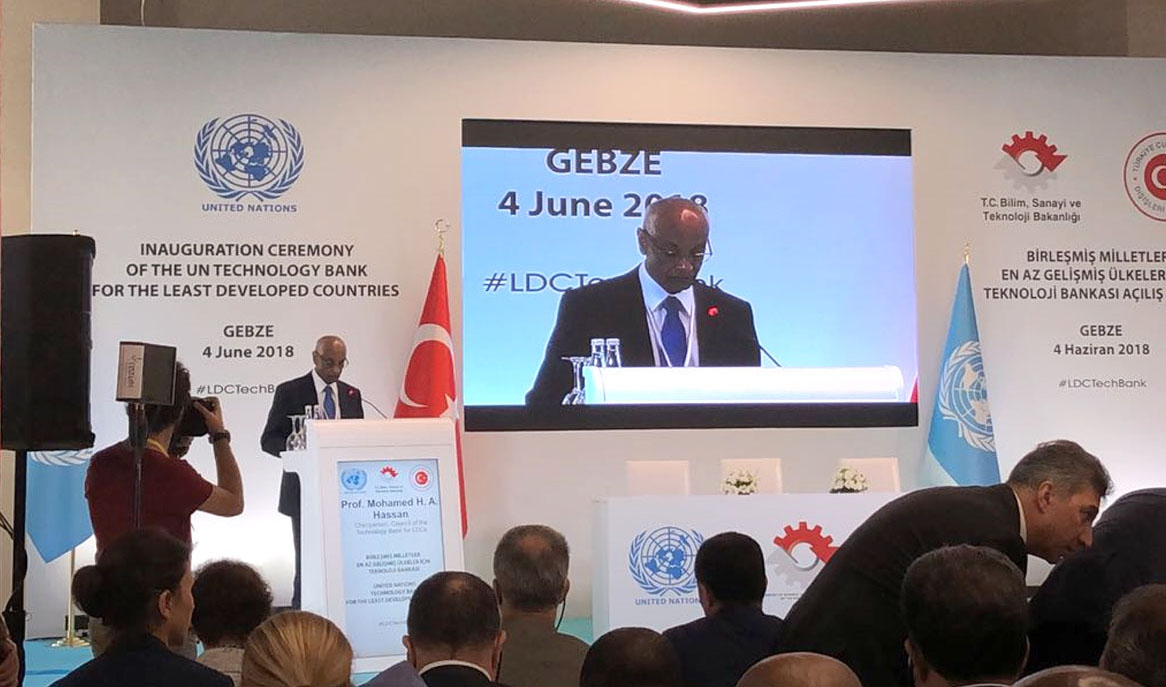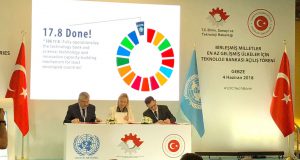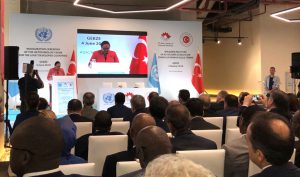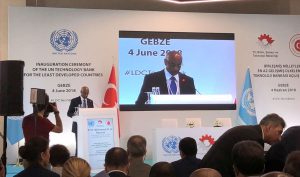A three-member delegation led by the Executive Director COMSATS, Dr. S.M. Junaid Zaidi, visited Turkey, from the 1st to 6th of June 2018. The visit was undertaken to attend the inaugural session of the UN Technology Bank for Least Developed Countries and to have follow up meetings on possible partnerships/collaborations.
The members attended the inaugural session of the UN Technology Bank hosted by the Government of Turkey on the 4th of June 2018. The ceremony marked the achievement of the first target of the 2030 Agenda for Sustainable Development, SDG target 17.8.
The day-long event comprised of an opening session and a panel session on Fostering STI in the LDCs: “The contribution of the Technology Bank for LDCs”. The opening session featured remarks from a number of distinguished speakers that included: Ms. Heidi Schroderus-Fox, Acting Managing Director of the Technology Bank for LDCs and Director of UN-OHRLLS; H.E. Dr. Faruk Ozlu, Minister of Science, Industry and Technology of the Republic of Turkey; Ms. Amina J. Mohammed , Deputy Secretary General of the United Nations; H.E. Dr. Mohammed Al-Sadi, Minister of Planning and International Cooperation of the Republic of Yemen (as Vice Chair of LDCs); H.E. Ms. Marianne Hagen, Secretary of State, Ministry of Foreign Affairs of the Kingdom of Norway; Mr. Ziya Altunyaldiz, Deputy of Konya, Chairman of the Commission of Industry, Trade Energy, Natural Resources, Information and Technology of the Grand National Assembly of Turkey; Ms. Fekitamoeloa Katoa, ‘Utoikamanu, Ambassador USG and High Representative for LDCs, LLDCs and SIDS; Prof. Mohamed H. A. Hassan, Chairperson, Council of the Technology Bank for LDCs; and H.E. Mr. Masud Bin Momen, Ambassador and Permanent Representative of Bangladesh to the UN. It is pertinent to mention here that Prof. Hassan serving as the Chair of the Governing Council of Technology Bank is the honorary life-time member of COMSATS Coordinating Council.
In her remarks on the occasion, UN Deputy Secretary-General thanked the Government of Turkey, the least developed countries and other for their support to this important initiative. “By building technical, vocational, managerial and scientific capacity in least developed countries, we will make major strides towards our critical objective of leaving no one behind”, she said.
Another highlight of this session was signing of a tri-partite MoU between TUBITAK, the Technology Bank for LDCs, and Global Food Fund.
The panel session was chaired by Ms. Katoa and included remarks by Dr. Orkun Hasekioglu, Vice President of the Scientific and Technological Research Council of Turkey (TUBITAK); and Ambassador Murat Yavuz Ates, Deputy Undersecretary of the Ministry of Foreign Affairs of Turkey.
On the sidelines of the event, COMSATS’ officials had a number of productive meetings with counterparts and experts from various international organizations based in Turkey. A whole range of opportunities and possibilities for research and funding were discussed with regard to COMSATS’ Centres of Excellence, the International Thematic Groups and the Member States categorized as LDCs. COMSATS has 7 such member states: Bangladesh; Gambia; Senegal; Somalia; Sudan; Tanzania; and Uganda.
COMSATS’ delegation also visited the following research and development facilities in Istanbul, including: TUBITAK’s MARMARA Research Centre (COMSATS’ Centre of Excellence,), National Metrology Institute, and Informatics and Information Security Research Centre. The members of the delegation were shown state of the art R&D labs and were given detailed briefing on various facilities available with them. The Executive Director showed great interest in the remarkable progress Turkey had made in some of the very important facets of nation building through S&T. He offered the officials he met the access to a very vast and diverse resource that COMSATS had in the shape of member states, centres of excellence and the international thematic research groups.
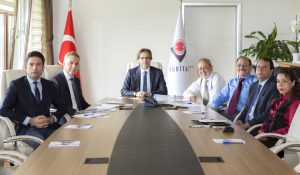
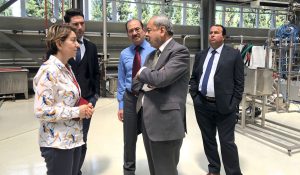
Reciprocating the generous offer from Dr. Zaidi, the management of research facilities showed keen interest in working closely with the COMSATS in areas of mutual interest. All participants of the meetings were of the unanimous view that the UN’s Technology Bank offers a huge opportunity to the least developed countries and it is in the greater interest of the participating institutions to make the best out of the great initiative.
The Executive Director assured his counterparts of his and the Commission’s resolve to help facilitate the member countries gain self-reliance through science and technology for sustainable development which is the key to national well-being and prosperity.

